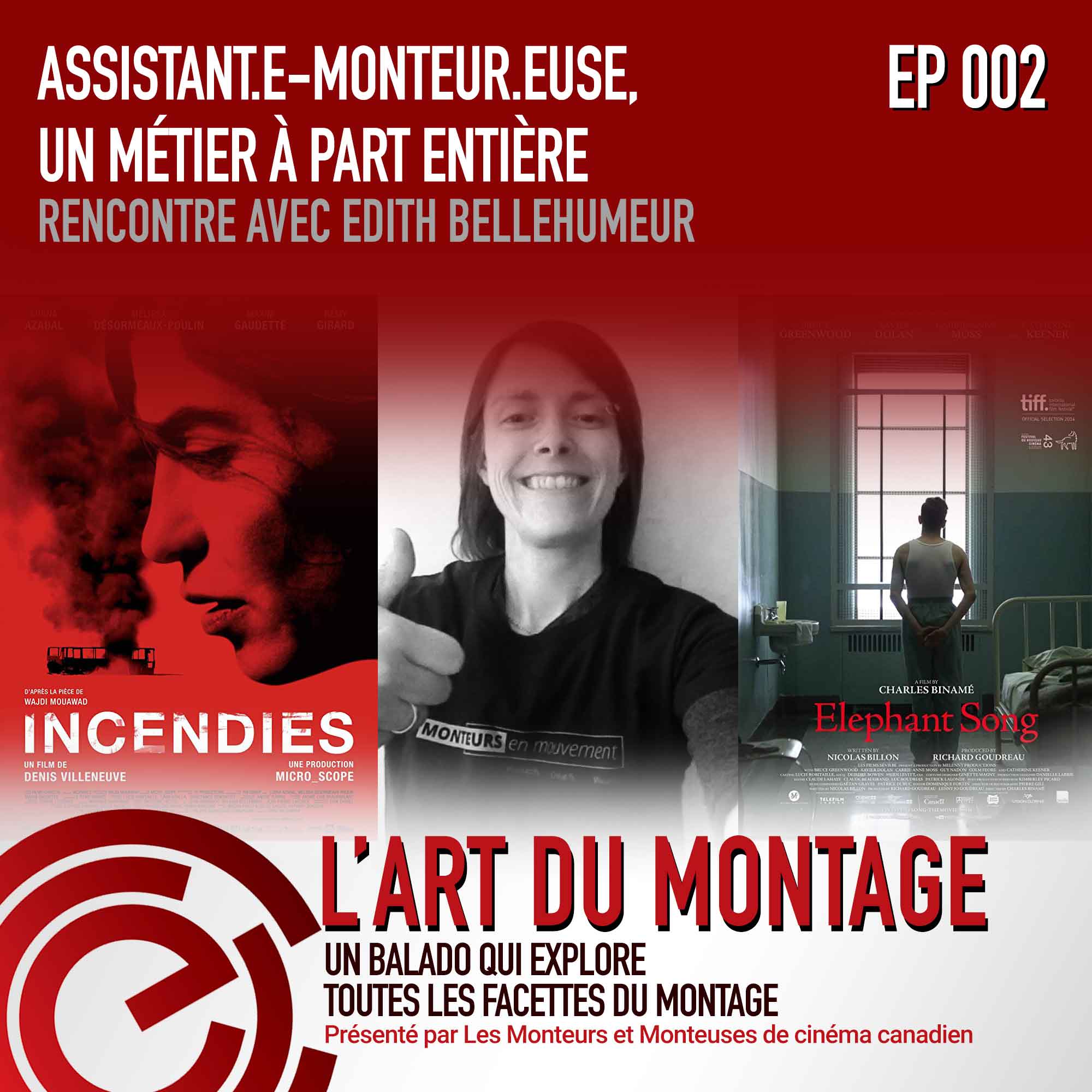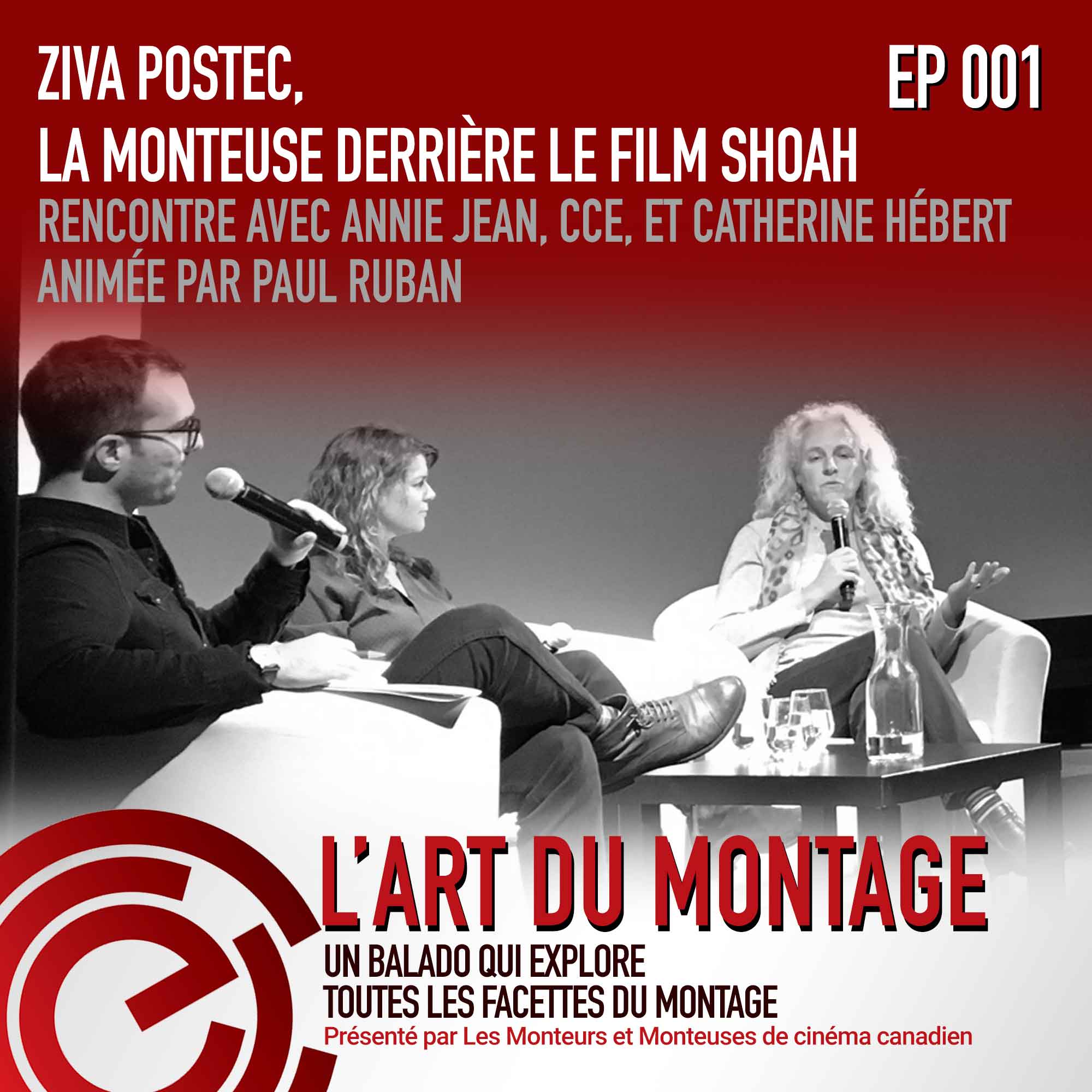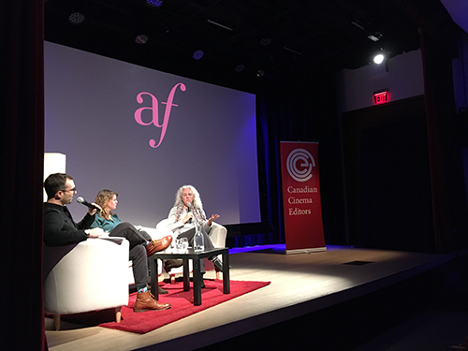
Episode 2: Assistant editor, a profession in its own right. Meeting with Edith Bellehumeur.

David Di Francesco, our podcast co-host, spoke with Edith Bellehumeur, assistant editor in film and television. Edith talks about her career path, her work in Montreal with several renowned editors, her vision of the profession and her transition to editing.
Listen Here
Subscribe Wherever You Get Your Podcasts
What do you want to hear on L'art du montage?
Please send along any topics you would like us to cover or editors you would love to hear from:
Credits
A special thanks goes to
Edith Bellehumeur
David DiFrancesco
Sarah Taylor
Isabelle Malenfant, CCE
Claudia Hébert
Maud Le Chevallier
Hosted by
David Di Francesco
Edited by
David Di Francesco
Main Title Sound Design by
Jane Tattersall, adapté en version française par Pauline Decroix
Mixed and Mastered by
Tony Bao
Music generously offered by




